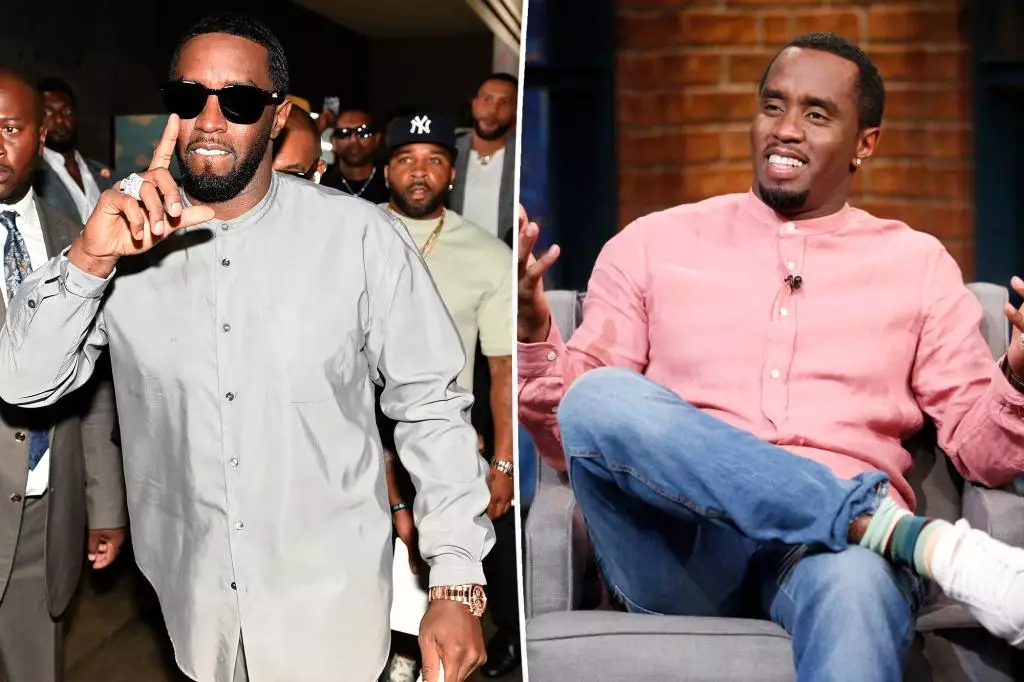In recent weeks, Sean “Diddy” Combs, the famed producer and former head of Bad Boy Records, has found himself at the center of a storm involving serious allegations of sex trafficking and attempts to manipulate legal proceedings. As the legal drama intensifies, prosecutors have laid out a scandalous narrative suggesting that Combs has been not only violating prison rules but also attempting to corrupt the judicial process itself. The case marks a significant moment in the ongoing scrutiny of celebrity demeanor amidst serious legal charges.
The accusations put forth by federal prosecutors indicate that since Combs’ incarceration at the Metropolitan Detention Center in Brooklyn, New York, he has engaged in various forms of misconduct through communication, violating established Bureau of Prisons (BOP) regulations. Prosecutors claim that Combs has leveraged the telephone accounts of other inmates to communicate with individuals beyond the confines of his approved contact list. This alleged ploy includes paying those inmates to gain access to their accounts, raising questions about the ethics and morality of his actions while facing such grave charges.
Moreover, the allegations extend to a broader strategy that Combs purportedly devised to maintain a favorable public image and sway public opinion regarding his pending trial. According to the prosecution, he has been orchestrating efforts to use social media as a platform to mitigate the fallout from his legal troubles. An example highlighted by prosecutors was an event surrounding Combs’ recent 55th birthday, which they described as a carefully constructed social media spectacle aimed at distracting the jury pool from the serious nature of his charges.
The prosecution’s depiction of such actions paints a picture of a man determined to control the narrative against overwhelming odds. They argue that these tactics not only undermine the integrity of the legal system but also suggest an intent to manipulate potential jurors through calculated public relations moves. They have drawn attention to the scale of these efforts, indicating that Combs appears to view his image and the public perception of his circumstances as critical components in the unfolding of his legal challenges.
Perhaps most troubling are the claims that Combs may resort to blackmail or intimidation in attempts to silence victims and witnesses. Prosecutors allege that he has made it clear, directly or indirectly, that he aims to influence testimony in a way that would benefit his defense. This raises dire ramifications: if true, this behavior could severely compromise the judicial process and have a chilling effect on those intending to come forward.
Such actions also feed into a larger narrative about accountability, especially concerning individuals in positions of influence and power. The notion that a celebrity figure might manipulate those around him, particularly vulnerable individuals caught in the web of the legal system, presents a disturbing scenario where justice could become more of a commodity than a principle.
As the trial date approaches—scheduled for May 5, 2025—the case has sparked widespread media interest and public discussion. The scrutiny surrounding Combs is emblematic of a broader societal examination of celebrity culture, privilege, and the justice system. The complexities of this case invite reflection on the difficulties of dispelling narratives shaped by public perception, personal influence, and the often convoluted nature of legal proceedings.
With Combs maintaining his innocence and claiming he has not engaged in any wrongdoing, the eventual court proceedings will shed more light on these startling allegations. As the legal landscape develops, observers will undoubtedly remain keenly focused on how this plays out—both inside the courtroom and beyond it. The Combs trial could serve as a pivotal moment in the broader conversation about accountability for those in positions of power, especially in the entertainment industry. The implications of the outcome could reverberate far beyond Combs himself, potentially influencing the behavior of others facing similar situations in the future.

